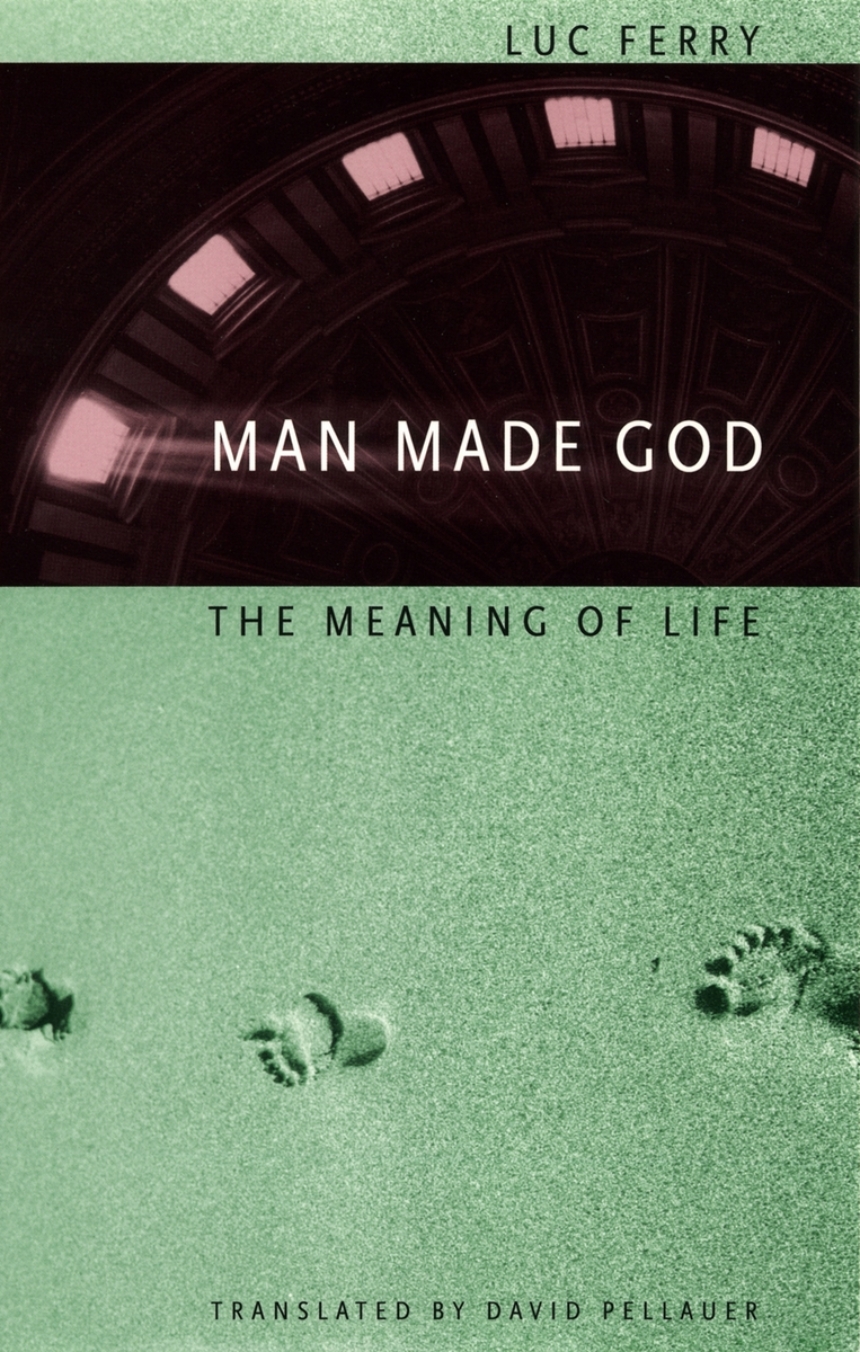Man Made God
The Meaning of Life
What happens when the meaning of life based on a divine revelation no longer makes sense? Does the quest for transcendence end in the pursuit of material success and self-absorption?
Luc Ferry argues that modernity and the emergence of secular humanism in Europe since the eighteenth century have not killed the search for meaning and the sacred, or even the idea of God, but rather have transformed both through a dual process: the humanization of the divine and the divinization of the human. Ferry sees evidence for the first of these in the Catholic Church’s attempts to counter the growing rejection of dogmatism and to translate the religious tradition into contemporary language. The second he traces to the birth of modern love and humanitarianism, both of which demand a concern for others and even self-sacrifice in defense of values that transcend life itself. Ferry concludes with a powerful statement in favor of what he calls "transcendental humanism"—a concept that for the first time in human history gives us access to a genuine spirituality rooted in human beings instead of the divine.
Luc Ferry argues that modernity and the emergence of secular humanism in Europe since the eighteenth century have not killed the search for meaning and the sacred, or even the idea of God, but rather have transformed both through a dual process: the humanization of the divine and the divinization of the human. Ferry sees evidence for the first of these in the Catholic Church’s attempts to counter the growing rejection of dogmatism and to translate the religious tradition into contemporary language. The second he traces to the birth of modern love and humanitarianism, both of which demand a concern for others and even self-sacrifice in defense of values that transcend life itself. Ferry concludes with a powerful statement in favor of what he calls "transcendental humanism"—a concept that for the first time in human history gives us access to a genuine spirituality rooted in human beings instead of the divine.
Table of Contents
Introduction
The Meaning of Life: The Withdrawal of a Question
1. The Humanization of the Divine: From John Paul II to Drewermann
2. The Divinization of the Human: The Secularization of Ethics and the Birth of Modern Love
3. The Sacred with a Human Face
Conclusion
The Humanism of Humanity Made God
Notes
Works Cited
Index
The Meaning of Life: The Withdrawal of a Question
1. The Humanization of the Divine: From John Paul II to Drewermann
2. The Divinization of the Human: The Secularization of Ethics and the Birth of Modern Love
3. The Sacred with a Human Face
Conclusion
The Humanism of Humanity Made God
Notes
Works Cited
Index
